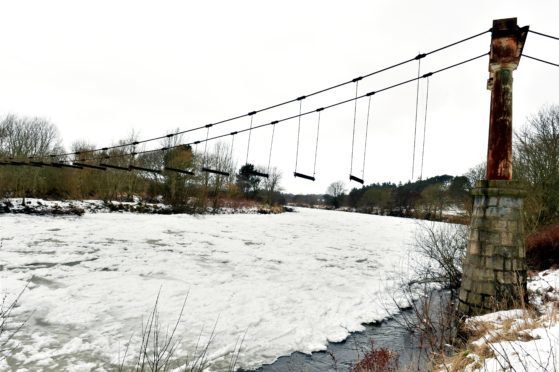Conservation experts have called for greater support for Scotland’s farmers in the face of the challenges presented by climate change.
WWF Scotland has warned against a common misconception that the rapidly shifting temperatures only affect countries thousands of miles away, ignoring examples of extreme weather experienced this year – with the Beast from the East and then an unusually hot and dry summer.
>> Keep up to date with the latest news with The P&J newsletter
Both spells of abnormal weather caused major issues for Scotland’s crops, with the biggest – barley – among the worst-affected leading to a drop in the amount of cereals and oilseeds planted.
Production of winter barley was down 24% and the spring crop, the main ingredient in Scotch whisky, experienced a 6% fall in yield. Yield of wheat fell by 16%.
Scotland’s hill farmers also felt the impacts of climate change as the combination of the unusually long winter and very dry summer affected the availability of fodder, and led to a spike in sheep losses.
Lynn Cassells, who runs the award-winning Lynbreck Croft near Grantown on Spey, said farmers would have to re-think their business models in order for them to remain sustainable.
She said: “In the space of a year we experienced a period of extreme wet, followed by months of snow cover and then a long, hot summer where our water supply ran dry.
“This made our day to day farm operations very inconsistent as we faced new challenges prioritising our work and financial outlay.
“With climate change something we are now experiencing directly, our farm business model for the future must be based on long term resilience.
“That includes diversifying our products, integrated land use including more tree cover, improved water and soil management and working with natural processes and our environment to ensure the ongoing productivity and profitability of our rural enterprise in uncertain times ahead.”
Sheila George, food and environment policy manager for WWF, said: “We can no longer think about climate change as a problem other people are experiencing many miles away, it is happening right now in front of our eyes at home.
“The temperature extremes experienced this year, from the ‘Beast from the East’ to the prolonged hot, dry summer have had a major impact on farmers and on the food we can buy and eat.
“That’s why we believe there’s an urgent need for greater leadership and support from the Scottish Government to help farmers adapt and build resilience to climate change impacts in the face of increasingly extreme and unpredictable weather.”
The Scottish Government insisted had a plan in place for climate change which promoted the benefits of low carbon farming, while also acknowledging the efforts farmers are already making to reduce emissions by installing their own wind turbines.
A spokesman added: “We continue to engage with the industry to ensure that appropriate support is provided during challenging times. This includes offering support to our farming communities through the early payment of loans, securing derogations from European rules, and supporting the work of the Agricultural Weather Advisory Panel and Farm Advisory Service.”
